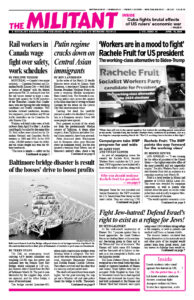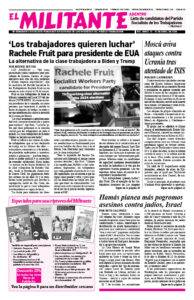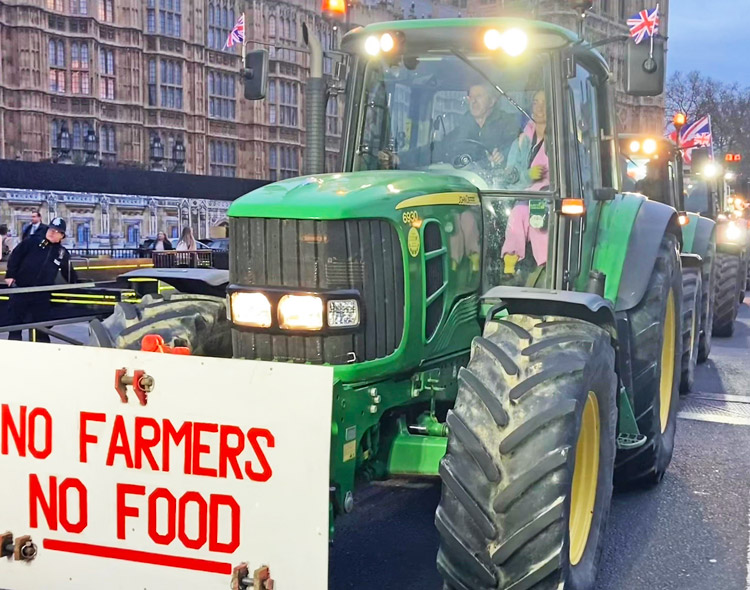LONDON — With signs reading “Stop killing farming” and “No farmers, no food, no future,” up to 100 tractors descended on Parliament Square here March 25. Organized by the recently established Fairness for Farmers of Kent, the protest was the biggest farmers’ action in the capital in years.
“Production costs are killing us,” James Forknall told the Militant. “The price of fuel and fertilizer has sky-rocketed with the Ukraine war. And the price we get for what we farm fluctuates wildly.”
Forknall farms 2,500 acres with his father, employing six workers. “It’s come to the point when many farmers are cutting back,” he said. “Under the government’s misnamed ‘Sustainable Farming Incentive’ many are finding they can make more by growing hedgerows and trees than producing food.”
Kevin Coleman raises cattle at a much smaller holding, with 100 head of cattle, near Dover, Kent, in southeast England. He joined the protest along with Chloe Seath, another Kent farmer who works together with her husband, Philip. They have 250 cattle. He was not able to make the protest because of an accident. Farming has the highest accident rate of any industry, with 27 deaths last year.
“This is the beginning of something,” Liz Webster, one of the protest organizers, told the press. “We are not going to stop until we get what we need.”
She said that the situation is especially hard for small farmers and even more so for tenants. Webster, who works a beef and crop farm in Wiltshire, is the founder of Save British Farming. She calls for restrictions on “cheap” farm imports, which she says are “substandard,” and for supermarket labeling that clearly identifies a product’s country of origin. Many farmers on the protest agreed.
“When I go to buy food, like most workers I’m interested in quality and price, not where they’re farmed,” said Dag Tírsén to Coleman and Seath. He is a rail worker and Communist League member.
“Farmers in Germany and France are also calling for import restrictions,” Tírsén said. “Wouldn’t it be better if farmers worldwide got together in a common fight to protect their living standards? And if farmers fought together with the trade unions? We’re all being hit with rising prices.”
“We’re not trying to shame anyone from buying imported food,” Coleman replied. “All working people are suffering. What you say about struggling together is good. I’ve read that in Germany the farmers have linked up with the rail unions.”
“There should be a workers and farmers government in Britain,” Tírsén said, “not a government of the ruling rich.”
The farmers’ action was supported by dozens of protesters opposing a tax on vehicle emissions imposed by London Mayor Sadiq Khan, who has declared London a ULEZ, Ultra Low Emission Zone.
“We welcome support from the anti-ULEZ campaigners,” Coleman said. The tax is “another example of working people being made to pay, but the crisis is not of our doing.”


